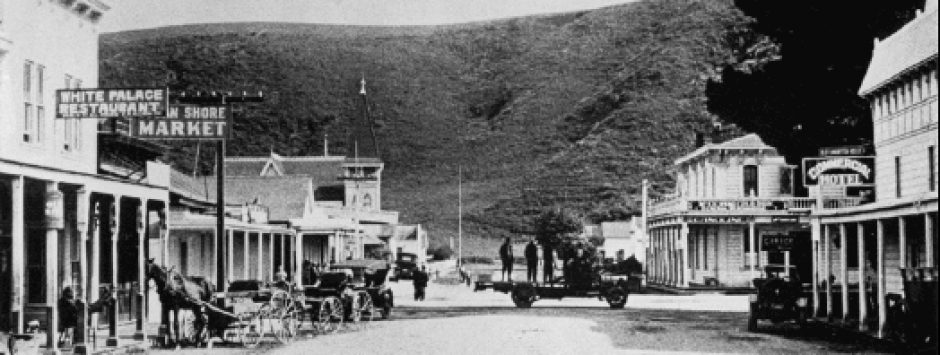New-old story by June Morrall
How did they get the merchandise for the store in Half Moon Bay? Once a week Fernand or Joe jumped into a “spring wagon” with a team of horses and left home at 2 a.m. for the long journey to San Francisco. He had to leave extra early to be there in time for the early produce market opening, obviously to augment what he must have bought from local farmers. He also visited the nearby wholesale houses
His direction was eastward, over the untamed mountains, following the stage route near present day Highway 92. Where there once was a valley with a few farms, now filled with water and known as Crystal Springs Lakes, the Levy’s wagon turned a sharp north toward the place where the sand dunes were being replaced by a growing population.
Twenty-four hours, the wagon from Half Moon Bay returned filled to the brim.
The Levy brothers were loveable in a town where it might take a little longer to be loved. Maybe it was the accents, the charm, their oh so recent connection to Europe, the “old country,” where the culture was distinctly different from that of the newer, eartheir America.
Of the pair, Fernand was the eldest, endowed with the fatherly touch; Joe was a humorous guy who always had a joke in his back pocket. Sometimes he went farther like the time a salesman bent down to pick up his suitcase and found it wouldn’t move in any direction. Funny man Joe had nailed it ot the floor.
Whatever it was, they possessed a magical kind of charisma. The brothers knew how to deal with their employees so that internal beefs were settled amicably and fairly. It’s ok to ask: Was this just a fairytale?
The store became profitable very fast and Fernand and Joe thought about opening similar stores on the Coastside. Then came the “Panice of 1873” and money was tight, paralyzing the economy. The expansion plans were put on hold as the newspapers reported major businesses shutting down and declaring bankruptcy.
The hardworking farmers, who accounted for most of the Levy Brother’s business, suffered the most from the “Panic of 1873.” Those who lived farthest from town paid debts once or twice a year after selling their crops. But when bad weather, in the form of a long drought, hit, well, in some cases, they had no cash at all. Many solved the problem by running away (which also makes it hard to track down early Coastside settlers.)
Part III coming next
